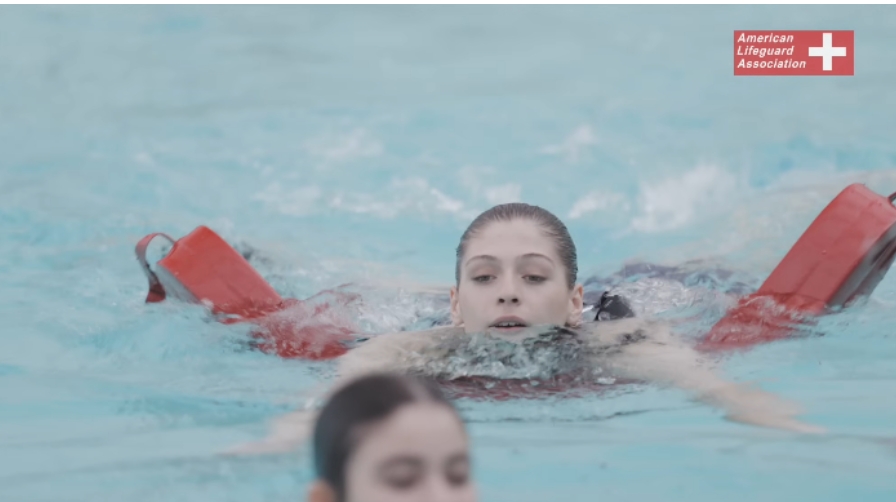Becoming a professional lifeguard is more than simply sitting in a seat by the water. It requires responsibility, vigilance, and a commitment to saving lives. Lifeguards are significant for keeping up with safety in pools, beaches, and aquatic facilities, preventing accidents, and answering emergencies effectively. Their role combines physical fitness, quick independent direction, and excellent training, making it both a challenging and compensating career.
The Skills Each Lifeguard Should Master
To excel as a lifeguard, it is non-debatable to master explicit skills.
- Physical Fitness
Swimming is at the center of lifeguarding, however you likewise need endurance, strength, and readiness to explore challenging water conditions and rescue circumstances. Standard fitness training, including swimming laps, rehearsing water rescue techniques, and keeping up with cardiovascular endurance, ensures you are dependably prepared to answer.
- Vigilance and Attention to Detail
A professional lifeguard should be highly perceptive, continually scanning the water for signs of distress or expected risks. Creating situational mindfulness and limiting distractions is crucial for distinguishing issues before they raise.
- Effective Communication
Strong verbal and non-verbal communication skills empower lifeguards to educate swimmers, caution about hazards, and direction during emergencies. Your ability to stay quiet and lucid under pressure is critical.
Pursuing Professional Training
Formal training is a cornerstone of becoming a skilled lifeguard.
Certification Programs
Lifeguard certification is a vital step toward professionalism which teaches life-saving techniques, including CPR, first aid, and water rescue activities. Picking a trustworthy training supplier that offers comprehensive instruction is significant.
Simulated Emergency Training
Active practice is an essential piece of certification programs. Realistic recreations, for example, rescuing oblivious casualties, rehearsing spinal injury conventions, and mastering get away from techniques, build confidence and prepare you for real-life scenarios.
Continuous Learning
Even subsequent to getting your certification, staying updated with the most recent safety techniques and conventions is essential. Consistently attending supplemental classes and workshops keeps up with max operation.
Building Experience in the Field
Experience is the extension between hypothetical knowledge and professional expertise.
Gaining Practical Exposure
Numerous section level positions permit you to improve your abilities in a supervised environment. Whether working at a community pool or a summer camp, these roles assist with building confidence and practical knowledge.
Taking care of Diverse Scenarios
As you gain experience, you’ll experience different circumstances, from minor injuries to life-undermining emergencies. Every incident enhances your independent direction and helps you to adjust to unpredictable conditions.
Developing Administration Characteristics
A professional lifeguard often goes about as a pioneer during emergencies.
Team Coordination
Whether managing individual lifeguards or working together with emergency responders, teamwork is essential. Strong initiative ensures that everybody understands their role and cooperates seamlessly.
Taking Initiative
Professional lifeguards are proactive. Distinguishing likely hazards, implementing safety guidelines, and educating the public about water safety are ways of preventing accidents before they occur.
Essential Equipment for Lifeguards
Having the right tools ensures safety and effectiveness.
Rescue Tubes and Boards
Rescue equipment empowers lifeguards to help swimmers in distress and transport them to safety safely. Normal support and practice with this gear are essential.
First Aid Supplies
A well-supplied first aid pack is significant for treating minor injuries on location. Lifeguards should be skilled at utilizing these supplies quickly and effectively.
Personal Safety Gear
Things like shades, caps, and sunscreen are important to protect against delayed sun exposure, while whistles and radios work with quick communication.
Excelling in Your Lifeguarding Career
Changing from a trained lifeguard to a professional requires commitment.
Specialization
Consider having some expertise in unambiguous areas, for example, beach lifeguarding, quick water rescue, or managing aquatic facilities. These ways often accompany advanced training and expanded responsibilities.
Networking and Mentorship
Associate with experienced lifeguards and participate in professional organizations. Their bits of knowledge can guide your career development and acquaint you with opportunities you probably won’t have experienced in any case.
Balancing Professionalism and Compassion
While specialized expertise is essential, the best lifeguards are additionally sympathetic and approachable. Finding some kind of harmony enhances your ability to effectively manage stressful circumstances.
The Role of Organizations in Lifeguard Development
Professional organizations play a significant role in keeping up with norms and propelling lifeguard careers. The American Lifeguard Association is an unmistakable element that gives training, assets, and direction for yearning and seasoned lifeguards.
Their programs focus on empowering lifeguards with the knowledge and skills expected to excel in their roles. Whether you’re hoping to get your underlying lifeguard certification or seeking advanced courses, this organization is a solid asset for professional growth.
Final Word
Becoming a professional lifeguard requires a mix of thorough training, practical experience, and a passion for safety. As you advance in your career, continuously sharpening your skills, staying updated with best practices, and associating with respectable organizations like the American Lifeguard Association will prepare for success. Embrace the challenges, commit to excellence, and have a lasting effect in the lives of those you protect.




